Dick Cavett Quotes & Sayings (Page 12)
Dick Cavett quotes and sayings page 12 (89 year old entertainer). Here's quote # 111 through 120 out of the 121 we have for him.
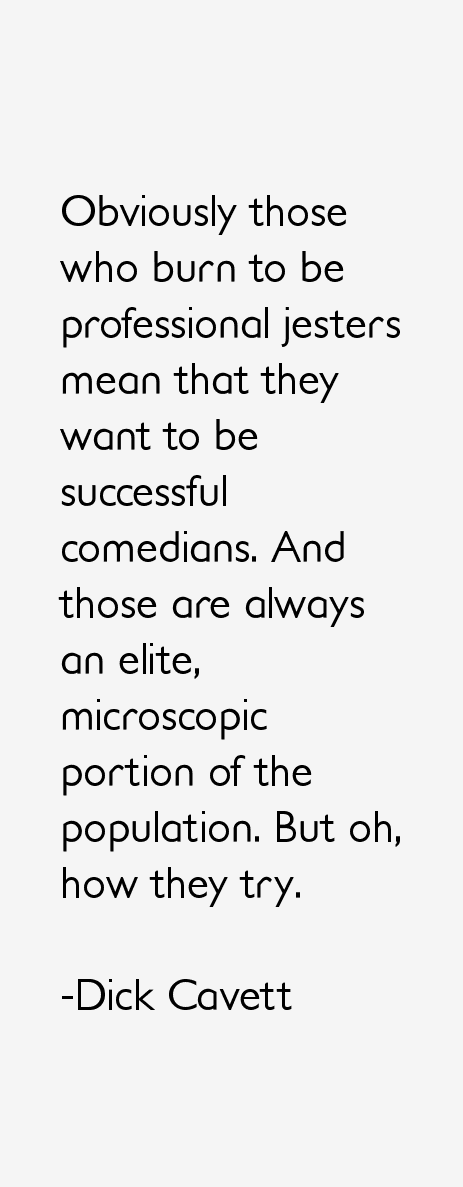
“Obviously those who burn to be professional jesters mean that they want to be successful comedians. And those are always an elite, microscopic portion of the population. But oh, how they try.”
“Statistically, I'd say comedy writers are perhaps the sanest category of show people. And why not? They make big money, and although it's not an easy trade - particularly when you're at your galley oar five days a week - it's easier on the nerves and the psyche than living with the brain-squeezing pressure and cares of being the Star.”
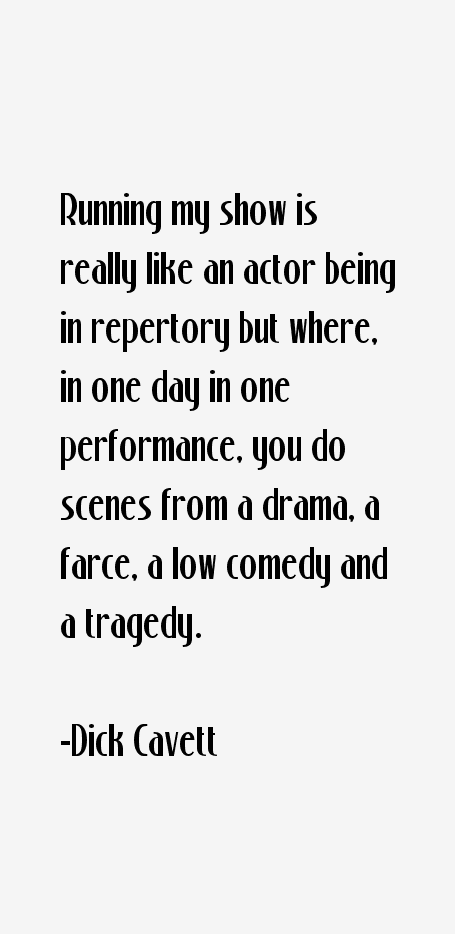
“Running my show is really like an actor being in repertory but where, in one day in one performance, you do scenes from a drama, a farce, a low comedy and a tragedy.”
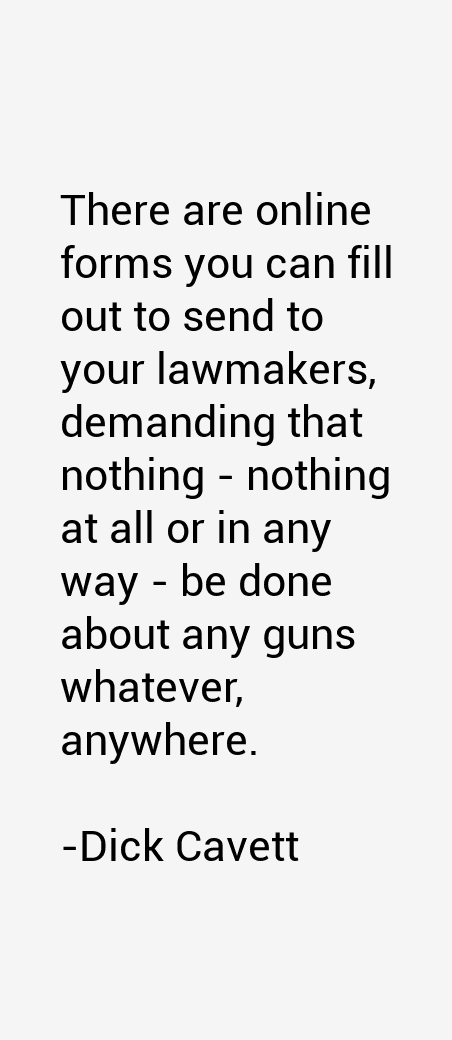
“There are online forms you can fill out to send to your lawmakers, demanding that nothing - nothing at all or in any way - be done about any guns whatever, anywhere.”
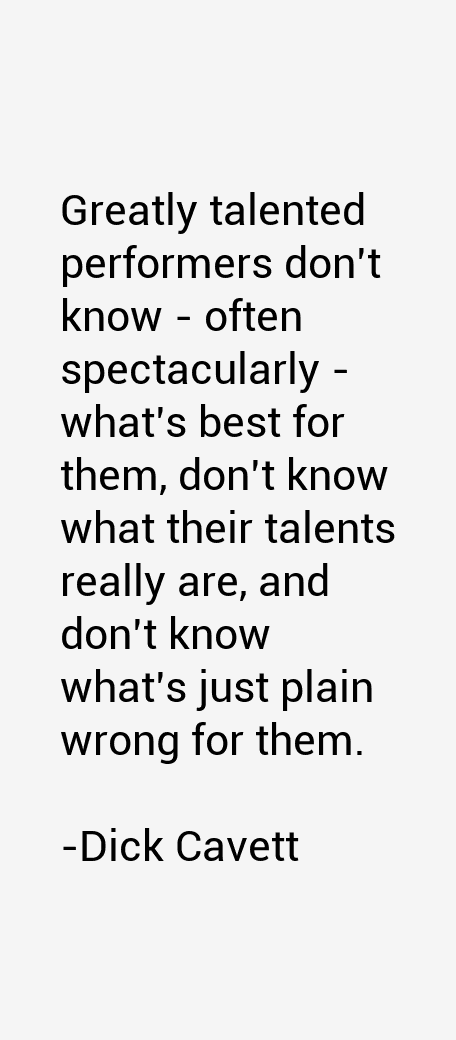
“Greatly talented performers don't know - often spectacularly - what's best for them, don't know what their talents really are, and don't know what's just plain wrong for them.”
“I confess, I do have to remind myself almost daily that there are people on this earth capable of reading, writing, eating and dressing themselves who believe their lives are ruled from billions of miles away, by the stars - and, of course, the planets.”
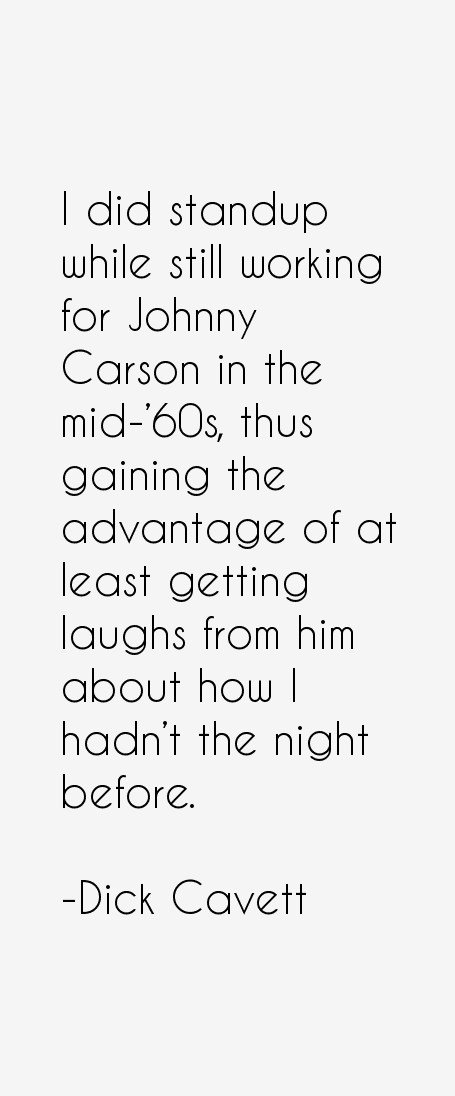
“I did standup while still working for Johnny Carson in the mid-'60s, thus gaining the advantage of at least getting laughs from him about how I hadn't the night before.”
“I had to fight the intellectual label when I started in television, because, first of all, it's not going to help you commercially, and also, it wasn't particularly true of me. I mean, if anybody thought I was an intellectual, they probably had never really seen one.”
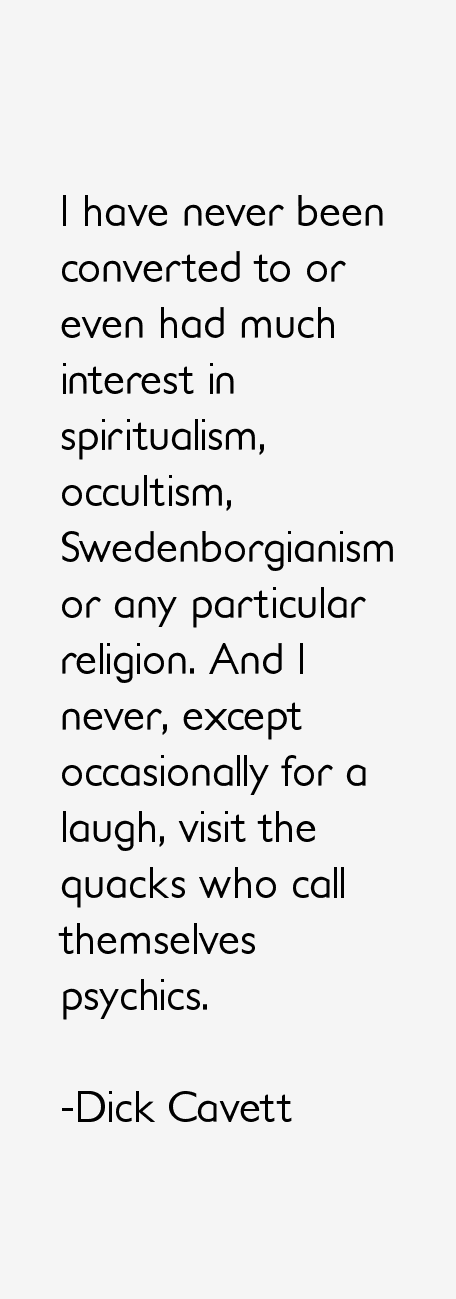
“I have never been converted to or even had much interest in spiritualism, occultism, Swedenborgianism or any particular religion. And I never, except occasionally for a laugh, visit the quacks who call themselves psychics.”
“I'm sure I've all but lost friends by maintaining that, despite their love for it, I always saw Stanley Kramer's 'It's a Mad, Mad, Mad, Mad World' as more of an exercise in anti-comedy than humor.”
Dick Cavett Quotes Rating
No Ratings Yet
Leave A Comment
























